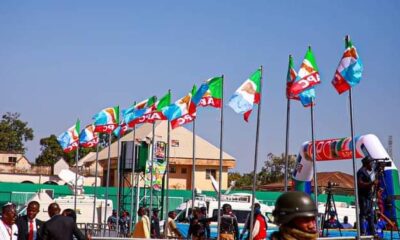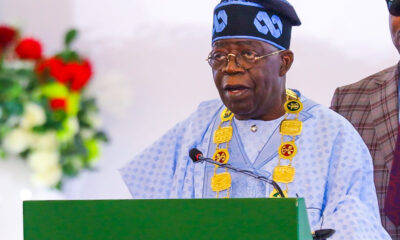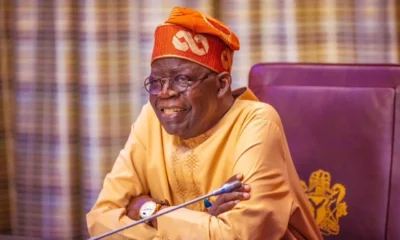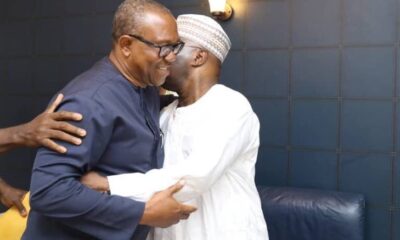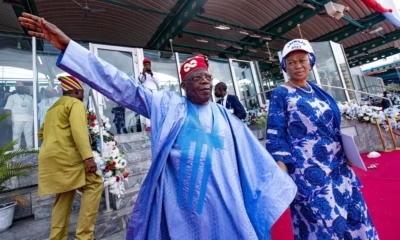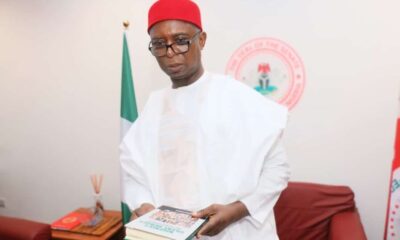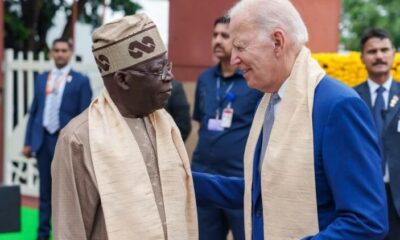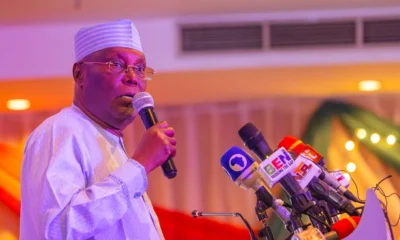NEWS
Why Nigeria’s 2023 Elections Matter for Generations to Come
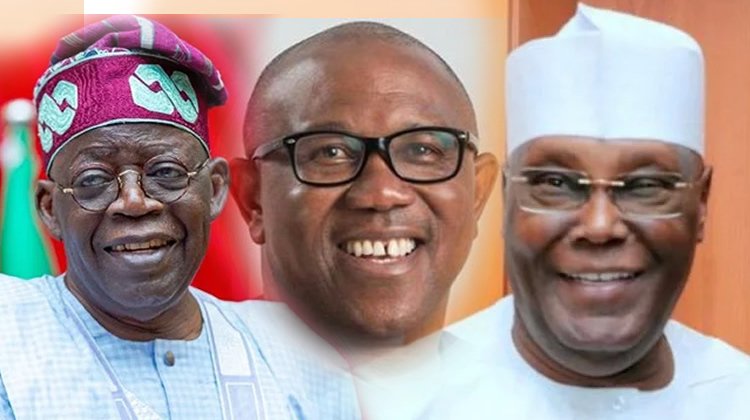
Nigeria has had a history of political turmoil, and the forthcoming elections present a unique opportunity for the country to take a significant step forward towards political stability.
Nigeria is the most populous country in Africa and is seen as a beacon of democracy in the continent. However, the country has been plagued with electoral fraud for many years, and the forthcoming elections are not expected to be any different. This article will discuss the ills of rigging in Nigeria’s elections and what lies ahead if this practice continues.
What are the ills of electoral rigging in Nigeria?
- Electoral rigging is the process of manipulating the election process in favor of a particular candidate or political party. This process is often characterized by voter intimidation, ballot stuffing, vote-buying, and falsifying results. In Nigeria, electoral rigging has been a significant challenge for many years, and the forthcoming elections are not expected to be any different. The ills of electoral rigging in Nigeria are many and varied, and they include the following:
-
Undermining the democratic process: Electoral rigging undermines the democratic process and reduces citizens’ confidence in the electoral system. When citizens lose faith in the electoral system, they are less likely to participate in future elections, leading to apathy and political instability.
-
Violation of human rights: Electoral rigging often involves voter intimidation and harassment, which violate citizens’ human rights. Voters are often coerced or intimidated into voting for a particular candidate or political party, denying them the right to vote freely.
-
Promoting corruption: Electoral rigging is often driven by corruption, as candidates or political parties seek to buy votes and falsify results to gain an unfair advantage. This promotes corruption and undermines the country’s efforts to fight corruption.
-
Promoting ethnic and religious tensions: Electoral rigging often involves manipulating the results in favor of a particular ethnic or religious group, leading to tensions and conflicts between different groups.
-
Undermining the rule of law: Electoral rigging is often carried out with impunity, with those responsible for the fraud going unpunished. This undermines the rule of law and promotes a culture of impunity.
What lies ahead if rigging continues being part of our voting culture?
If electoral rigging continues to be part of Nigeria’s voting culture, the consequences could be dire. The following are some of the potential consequences:
1. Political instability: Electoral rigging undermines the democratic process and reduces citizens’ confidence in the electoral system. This can lead to political instability and violence, as citizens resort to violent protests to express their dissatisfaction.
2. Economic stagnation: Political instability often leads to economic stagnation, as investors are hesitant to invest in a country that is politically unstable. This can lead to a decline in economic growth and development.
3. Social unrest: Electoral rigging often promotes ethnic and religious tensions, leading to social unrest and conflict between different groups.
4. Loss of international credibility: Nigeria is seen as a beacon of democracy in Africa, and electoral rigging undermines the country’s international credibility. This can lead to reduced foreign investment and diplomatic isolation.
5. Increased corruption: Electoral rigging is often driven by corruption, and if the practice continues, it can lead to increased corruption and a further decline in the country’s anti-corruption efforts.
The forthcoming elections in Nigeria have attracted several prominent candidates, each with their unique strengths and weaknesses. However, regardless of their political affiliations, these candidates are all vulnerable to electoral fraud, which has plagued Nigeria’s political system for many years. The following is an analysis of the major candidates and their potential vulnerabilities to electoral fraud.
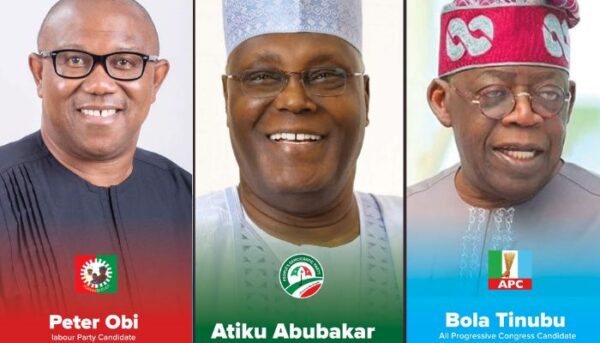
Peter Obi is a former governor of Anambra State and is the vice-presidential candidate of the Peoples Democratic Party (PDP) in the forthcoming elections. Obi is widely regarded as an astute administrator and a champion of good governance, and he is known for his anti-corruption stance.
However, Obi is vulnerable to electoral fraud in several ways. First, he is from the southeast region of Nigeria, which is known for its political and economic marginalization. This makes the region a potential target for electoral fraud, as candidates may seek to manipulate the results in their favor.
Second, Obi is known for his anti-corruption stance, which has made him a target for political opponents who may seek to use electoral fraud to discredit his candidacy. Third, Obi is running on the ticket of the PDP, a party that has been accused of electoral fraud in the past, making him vulnerable to allegations of electoral fraud, even if he is not directly involved.
Bola Tinubu is a former governor of Lagos State and a prominent member of the All Progressives Congress (APC). He is widely regarded as the political godfather of Lagos State and a formidable force in Nigerian politics.
However, Tinubu is also vulnerable to electoral fraud in several ways. First, he is from the southwest region of Nigeria, which is a highly competitive political zone. This makes the region a potential target for electoral fraud, as candidates may seek to manipulate the results in their favor.
Second, Tinubu is known for his political influence and financial resources, which have made him a target for political opponents who may seek to use electoral fraud to undermine his candidacy. Third, he is running on the ticket of the APC, a party that has been accused of electoral fraud in the past, making him vulnerable to allegations of electoral fraud, even if he is not directly involved.
Atiku Abubakar is a former Vice President of Nigeria and the presidential candidate of the PDP in the forthcoming elections. He is a seasoned politician and businessman with vast experience in Nigerian politics.
However, Abubakar is also vulnerable to electoral fraud in several ways. First, he is from the north region of Nigeria, which is a highly competitive political zone. This makes the region a potential target for electoral fraud, as candidates may seek to manipulate the results in their favor.
Second, Abubakar is known for his political influence and financial resources, which have made him a target for political opponents who may seek to use electoral fraud to undermine his candidacy. Third, he is running on the ticket of the PDP, a party that has been accused of electoral fraud in the past, making him vulnerable to allegations of electoral fraud, even if he is not directly involved.
In conclusion, electoral rigging is a significant challenge in Nigeria, and if the practice continues, it could have dire consequences for the country. The forthcoming elections present a unique opportunity for the country to take a significant step forward towards political stability. Nigeria must address the ills of electoral rigging and promote a culture of free and fair elections. This can be achieved by strengthening the country’s electoral laws and institutions, promoting transparency and accountability, and ensuring that those responsible for electoral fraud are held accountable.
This is a TopNaija Editorial on the forthcoming 2023 elections in Nigeria

